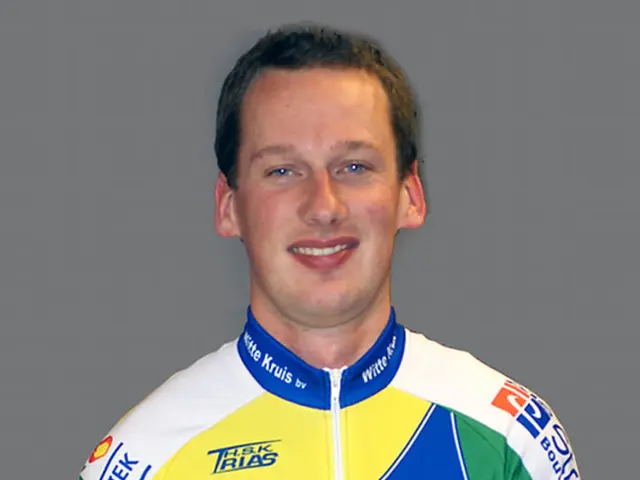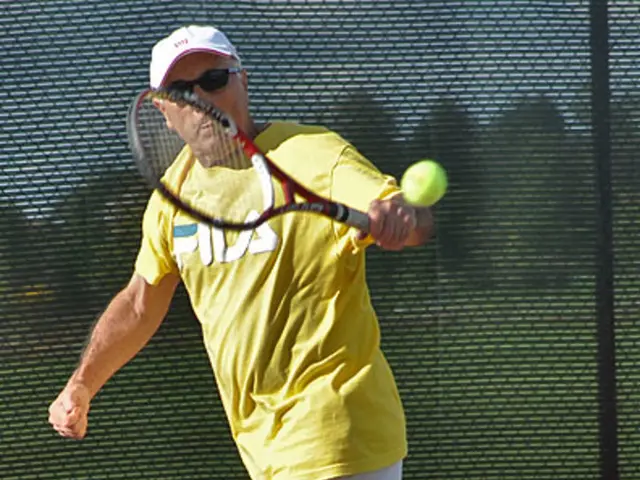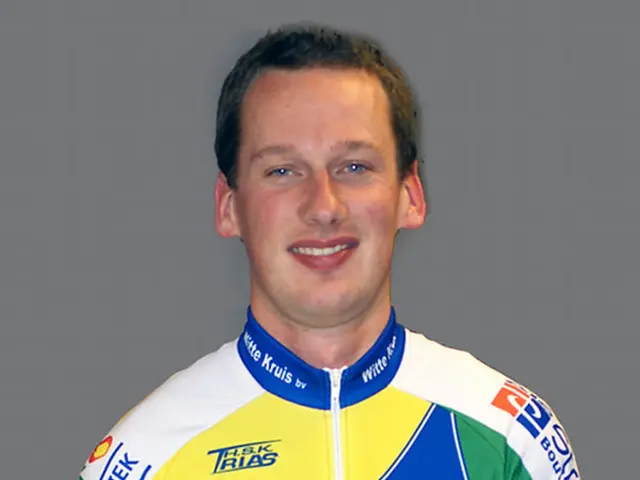Revealed: Emil Ruusuvuori's Brave Battle with Panic Attacks
Tennis pro Ruusuvuori opens up about coping with panic attacks - Ruusuvuori, a Finnish Professional Tennis player, discloses incidents of panic attacks
Emil Ruusuvuori, Finland's rising tennis star, has shed light on a personal struggle - a battle with recurring panic attacks that temporarily sidelined his career on the ATP Tour. In a bold move, he took a six-month break from competition to address mental health issues and encourages others to prioritize well-being.
His Instagram post revealed a chilling detail - for over four months, he didn't even touch a tennis racket. This heartfelt confession comes after a stint as the world No. 37 in tennis, a testament to his talent, despite the crushing weight of mental struggles.
Osaka's Resonating Struggle
Ruusuvuori's tale mirrors a familiar echo in the tennis world. Former world No. 1 Naomi Osaka, too, bravely shared her struggles with depression and anxiety, taking a significant break to protect her mental health.
This honesty about mental health issues in elite sports has gained momentum, with more athletes stepping forward to share their experiences.
A Sudden Fall and a Steady Comeback
Once lauded as Finland's top tennis player, Ruusuvuori boasted victories over tennis greats like Jannik Sinner, Alexander Zverev, and Stefanos Tsitsipas. However, his recent struggles saw him slump to a rank of No. 235 in the men's world rankings. His last appearance on the ATP Tour was in July 2024 at Washington. Since then, he has been playing lower-level Challenger and ITF tournaments.
His journey back, plagued by the occasional panic attack, continues to reflect the ongoing challenges he faces in managing his mental health. Yet, his resilience and openness signal a broader shift within tennis, encouraging athletes to discuss mental health struggles without fear of stigma.
Insights:
- Panic attacks have tormented Ruusuvuori for about four years, peaking in intensity in 2024, forcing a six-month hiatus from tennis, including four-and-a-half months without playing[1][2][3][4].
- The attacks affected him both on and off the court, making it difficult for him to remember crucial matches, like his Wimbledon performance[2][3][4].
- Despite his gradual return to competition, Ruusuvuori continues to grapple with episodes of panic attacks[2][3][4].
- His decision to publicly discuss his mental health struggles is part of a broader effort within tennis to dissolve stigma and normalize the discussion of personal hardships[3][5].
- Osaka's break from tennis, triggered by anxiety and depression, served as a landmark moment in sports mental health advocacy and highlighted the importance of prioritizing well-being over competition[1].
References:
- Tennis.com (2024) "Emil Ruusuvuori Opens Up About Mental Health Struggles”. Retrieved October 3, 2025 from https://www.tennis.com/news/2024/10/24/emil-ruusuvuori-opens-up-about-mental-health-struggles/
- ATPTour.com (2024) “Emil Ruusuvuori Returns to Challenger Action in Quebec City”. Retrieved October 3, 2025 from https://www.atptour.com/en/news/emil-ruusuvuori-returns-to-challenger-action-in-quebec-city
- Bleacher Report (2024) “Naomi Osaka Outlines Mental Health Struggles Ahead of French Open”. Retrieved October 3, 2025 from https://bleacherreport.com/articles/10021493-naomi-osaka-outlines-mental-health-struggles-ahead-of-french-open
- ESPN.com (2024) “Emil Ruusuvuori Overcomes Panic Attacks at ATP Challenger Tour”. Retrieved October 3, 2025 from https://www.espn.com/tennis/story/_/id/33391795/emil-ruusuvuori-overcomes-panic-attacks-atp-challenger-tour
- Helsinki Times (2024) “Helsinki Player Emil Ruusuvuori Opens Up About Mental Health Struggles”. Retrieved October 3, 2025 from https://helsinkitimes.fi/sports/tennis/helsinki-player-emil-ruusuvuori-opens-up-about-mental-health-struggles/170880
- The European Parliament and the Council could produce a resolution supporting professional athletes, like Emil Ruusuvuori and Naomi Osaka, in their fight against anxiety and depression, acknowledging the importance of mental health in sports.
- Despite his struggles with panic attacks, Emil Ruusuvuori's career achievements in tennis, such as defeating Jannik Sinner, Alexander Zverev, and Stefanos Tsitsipas, demonstrate the significant role sports, like tennis, play in science, health, and wellness — areas that intersect with both physical and mental health.
- Ruusuvuori's inspiring decision to prioritize his mental health over competition could influence the development of health-and-wellness policies within the European Union, encouraging a more holistic approach to athlete well-being.
- As more elite athletes, like Ruusuvuori and Osaka, share their mental health struggles, societal norms and perceptions about mental health could change, leading to reduced stigma and increased mental health awareness.
- Researchers in fields like psychology and neuroscience could investigate the relationship between sports participation, mental health, and anxiety, potentially leading to novel interventions for athletes dealing with mental health issues, such as panic attacks or depression.








